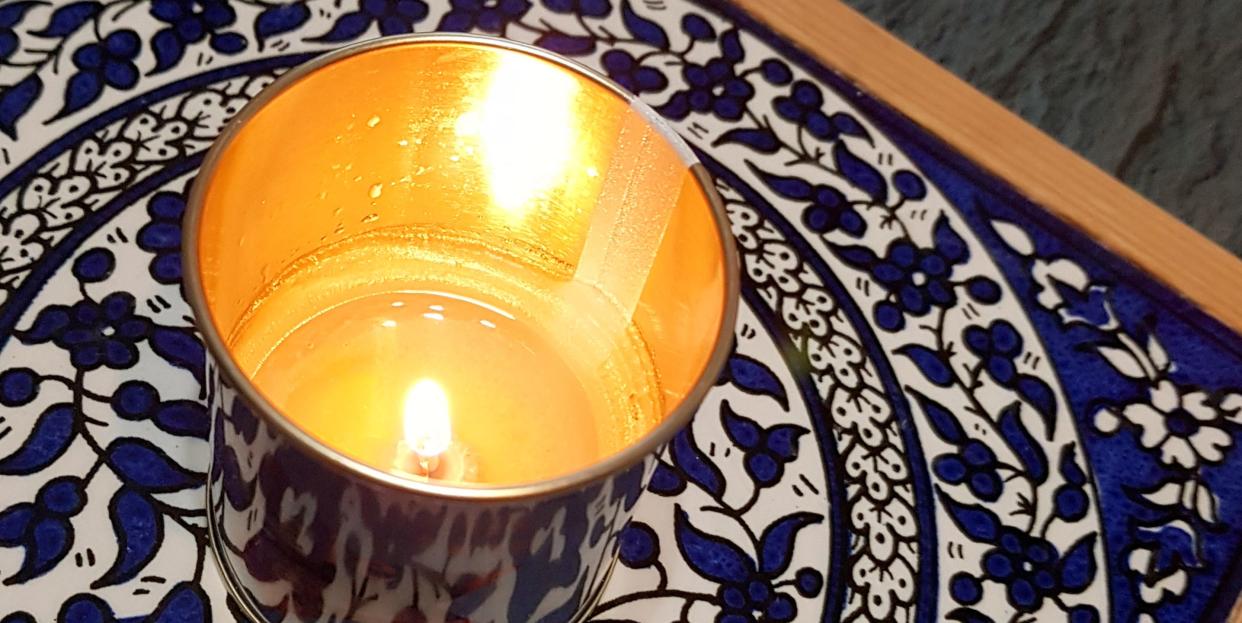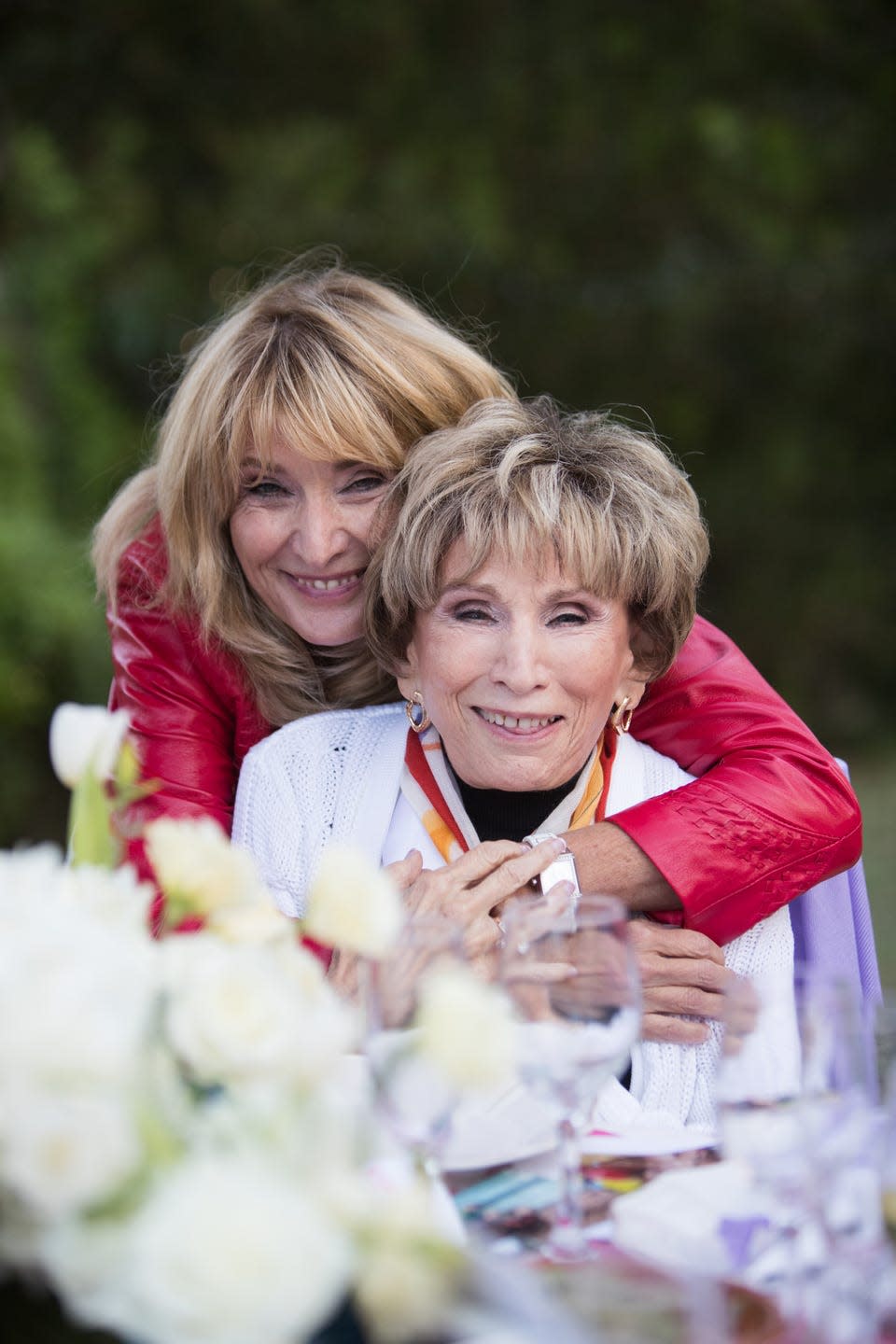Edith Eger on Remembering the Holocaust and Committing to Be Free

I’m a 95-year-old survivor of the Holocaust. In April 1944, when I was 16, I ate a Seder meal with my family to celebrate Passover, the holiday that commemorates the Jews’ liberation from slavery in Egypt. The next day, in the still-dark early dawn, the Hungarian Nazis pounded on our door. They rounded us up with the other Jewish people in our city, imprisoned us in an old brick factory on the outskirts of town, and then loaded us into cattle cars bound for Auschwitz.
People often ask me, “How did you overcome such a horrific experience?” The word overcome has never made sense to me. Trauma, like grief, has no end point, no expiration date. It’s not something you surmount and then cast aside. It isn’t ever erased or undone. I haven’t overcome the past. I haven’t overcome the selection line at Auschwitz, or watching my parents walk away to their deaths. I haven’t overcome the smoke-spewing chimneys or the insidious smell of death. I haven’t overcome the months of torture, starvation, and constant fear, or the doubled-over feeling of loss after the war, so many gone, the grief so vast you could drown in it. But I’ve come to terms with what happened.
This week is Yom Hashoah, or Holocaust Remembrance Day. While I don’t think it’s useful to spend this day, or any day, swallowed up by past horrors, venting anger, braced in fear, I do think it’s important to take a pause in our lives to remember where we’ve been and what we’ve been through. Just as a football coach calls for a time-out, today can be a time to regroup and re-decide. What am I doing today so that the past isn’t repeated? What am I doing to celebrate my life and my freedom? Where in my life am I still a prisoner—to worry, fear, perfectionism?
Here are five ways I plan to recognize Yom Hashoah. These practices are useful for any person, including people who aren’t Jewish or who have no direct, personal connection to the Holocaust. And they’re useful any day of the year.
Get comfortable with discomfort. It is excruciating to experience, and even to witness, suffering. The war in Ukraine is making us familiar with atrocity. Reading and watching the news can put us in a state of fear and overwhelm. Sometimes we respond to the intensity by going numb. By shutting it out, refusing to feel. Seeing Ukrainian people rushing to Poland, children in their mothers’ arms, wrapped against the cold; hearing about the bombs pounding civilians at train stations as they tried to reach safety—it’s been potent and sometimes debilitating. It’s forced me to relive my own past, to recount and re-experience that time when my own life was on the line, when fear snared me minute to minute to minute. But, as I often say, you can’t heal what you don’t feel.
Today, spend five minutes holding space for others’ suffering—or your own. Look at a newspaper photo showing devastation in Ukraine, or think back to a time of personal difficulty. Be with the feelings that come up. Name them. Sorrow. Anguish. Anger. Fear. Hold the discomfort as you would a screaming baby, with tenderness, presence, love. With your heart opened to those suffering—including yourself—resume your day.
If I survive today, tomorrow I will be free. There were many ways to die in a death camp. Starvation. Torture. Gas chambers. Bullets. Electric fences. These were physical consequences imposed by our captors. We didn’t get to choose what befell us. But there was also a death sentence that came from within: hopelessness. We must always do everything in our power to kindle hope. When we lose hope, we lose our inner light. We lose our ability to imagine a better world or circumstance. In Auschwitz, I had two mantras that kept me going. I told myself, If I survive today, tomorrow I will be free. And I dreamed of seeing my boyfriend, Eric, again. When I’d boarded the cattle car that took me to Auschwitz, he told me, “I’ll never forget your eyes. I’ll never forget your hands.” And so I imagined seeing him again, embracing him, showing him my eyes and my hands. Hope wasn’t a bulletproof vest. I still could have been killed at any moment. It didn’t change reality. But it helped me stay alive inside, no matter what was happening on the outside.
Today, choose a statement of hope. Repeat it at intervals—perhaps every hour on the hour, or every time you wash your hands. Let hopefulness become your default mode, your resting place.
Know that you don’t know. Each of my parents had an opportunity to choose differently—to leave Hungary and start our lives anew someplace else, a chance to keep our family intact, to save their lives. As I’ve watched Ukrainian families weigh the difficult decision of whether to stay or leave, I’ve thought of my parents’ regret. The thing is, we never know the future. We do the best we can with what we have. We keep going. We find the balance between working, loving, playing. We set priorities and give up the need for perfection.
Today, choose one priority action in each category: working, loving, playing. Check in at the end of the day. Did you work, love, and play? If you did, thank yourself. If you didn’t, forgive yourself. Tomorrow is another day.
The flowers you planted are blooming. This Passover, as I ate chocolate-covered matzoh with my great-grandchildren, I celebrated my freedom–and my wound. While Auschwitz was hell on Earth, it was also my best classroom. I learned my own strength. I learned to be a survivor, to never be a victim of anyone, anything, or any circumstance. Suffering of some kind is inevitable in life–and it makes us stronger. When we’re victims, we say, “Why me?” When we’re survivors, we say, “What next?” We appreciate the struggle for what it teaches us about our inner resources and strength.
Today, notice that it’s springtime. The flowers you planted are blooming. You are also blooming. Name five signs of spring opening around you. And name five ways that you are showing up with beauty, bounty, and strength.
Savor the flavors of life. My friend called me today. “How are you?” she asked. “So-so,” I replied. My daughter Marianne is about to return to New York for a few months, and I’ll miss her fiercely. I’m on antibiotics, and the medication makes me feel a little wobbly and unstable. I’ve felt better. I’ve felt worse. And that’s okay. I don’t have to feel great every minute to prove I have a good life or that I’m a person of strength. And on the wobbly days, the so-so days, I can choose where I put my attention. I can acknowledge the reality, yet not fixate on what’s wrong. I can point my eyes at the sky, at the shape of a flower, at my own hands resting in my lap. I can taste my food. Feel each breath. We don’t need to stay “up” all the time, bouncing from one chemical high to the next. Having a passion for life doesn’t mean feeling happy every second. It means experiencing what’s here. I’ve often said that the most common mental health condition we struggle with is hunger. We’re hungry for joy, love, belonging. If we are hungry, life is the feast.
Today, savor the flavors of life. Notice a sound, sight, smell, taste, and touch sensation. You don’t have to label it good or bad, pleasant or unpleasant. Savor the feast.
For many people, Yom Hashoah is about remembering loved ones or ancestors who perished in the Holocaust, or for recommitting to the conviction “Never again.” I, too, sit with the memory of my parents, and Eric, and the millions of others who died. And I sit with the awareness that history often repeats itself, that we can’t sit back and let peace make itself.
Yet when I remember where we’ve been, I also celebrate how far we’ve come. That we made it till now. That every moment of life is an opportunity to commit to being free.
May you also remember.
Edith Eger, PhD, is a native of Hungary and was a teenager in 1944 when she and her family were sent to Auschwitz. Her parents were sent to the gas chambers, but Eger’s bravery kept her and her sister alive. After the war, Eger moved to Czechoslovakia, then the United States. She has a degree in psychology from the University of Texas, El Paso, and a doctoral internship at the William Beaumont Army Medical Center at Fort Bliss, Texas.
Eger is a prolific author and a member of several professional associations. She has a clinical practice in La Jolla, California, and holds a faculty appointment at the University of California, San Diego. She has appeared on television numerous times, including on CNN and on The Oprah Winfrey Show, and was the primary subject of a holocaust documentary that appeared on Dutch National Television.

You Might Also Like

